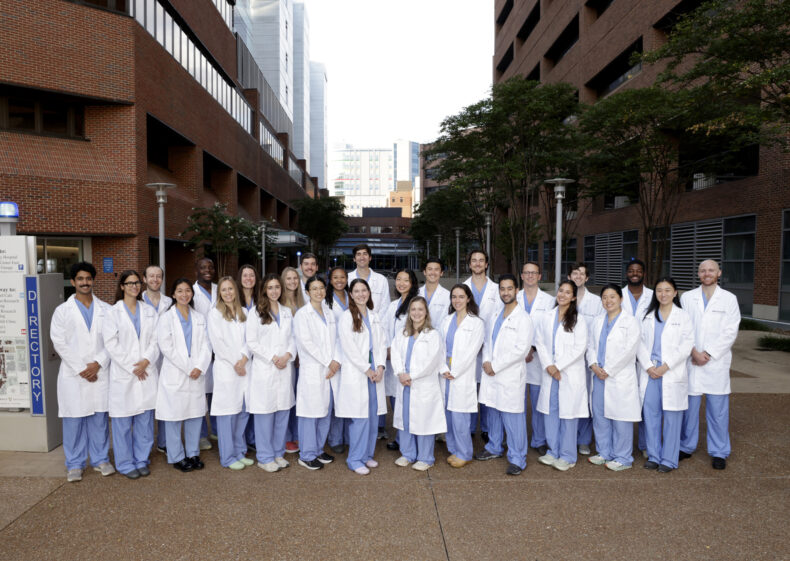
The pandemic disrupted daily life for millions of people across the world. Front-line workers such as health care providers bravely continued working to save lives, but one area of health care that came to a halt was visiting medical student rotations and recruitment for residency positions at VUMC.
Each year before the pandemic, approximately 40 medical students interested in matching into the Department of Otolaryngology’s residency program would visit during the fall or summer.
During residency recruitment seasons, students came to Vanderbilt’s campus for a weekend of in-person interviews, which allowed them the chance to learn about the residency program and to explore Nashville.
In March 2020, when it became clear that in-person visiting student rotations and residency interviews would be put on hold, Amy Whigham, MD, MS-HPEd, assistant professor of Otolaryngology – Head and Neck Surgery (HNS) and director of resident and medical student training innovation, developed a plan to develop the department’s medical student education and residency recruitment into a virtual experience.
“As a department, we wanted to offer educational and interactive experiences where potential residents could virtually meet current faculty and residents and learn about our culture,” Whigham said.
Whigham and Michael Topf, MD, assistant professor of Otolaryngology – HNS, created four-week virtual rotations known as the Vanderbilt Otolaryngology Online Medical Student Experience (VOOMSE), which included participation in weekly didactic courses, question-and-answer sessions, weekly departmental grand rounds, faculty small group sessions, a social with residents and two simulated call shifts to discuss otolaryngology cases in airway and facial trauma emergencies. Students were offered 10 to 15 hours of virtual activities over the course of the month.
Other improvements the department made included updates to its website and recruitment videos, offering a virtual town hall meeting, a virtual 3D facility tour, consistent social media engagement and a Vanderbilt Otolaryngology – HNS “album” which included a playlist of the faculty and staff’s favorite operating room songs, created by Alex Langerman, MD, associate professor of Otolaryngology – HNS.
With nearly 50 students participating and feedback indicating that the students attended more than 50% of VOOMSE sessions offered, the program was considered a major success by department leadership.
“The flexible schedule without strict requirements encouraged students to participate when they were able, and repeating events provided ample opportunity to interact with residents and faculty and to learn about the department,” Whigham said.
Although virtual residency recruiting efforts were first thought to be restrictive, Whigham and Topf found that virtual education options offered a more equitable approach to learning due to nonexistent travel and housing costs.
Moving forward, the department hopes to continue building on its successful virtual recruitment efforts to allow more opportunities, connections and visibility for its residency program.
“We have an amazing resident cohort, and it keeps getting better,” Whigham said. “They are the soul of the program, and we want to continue to recruit the very best residents that we can.”

















